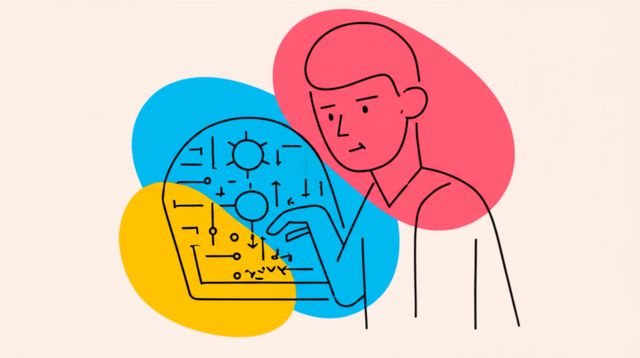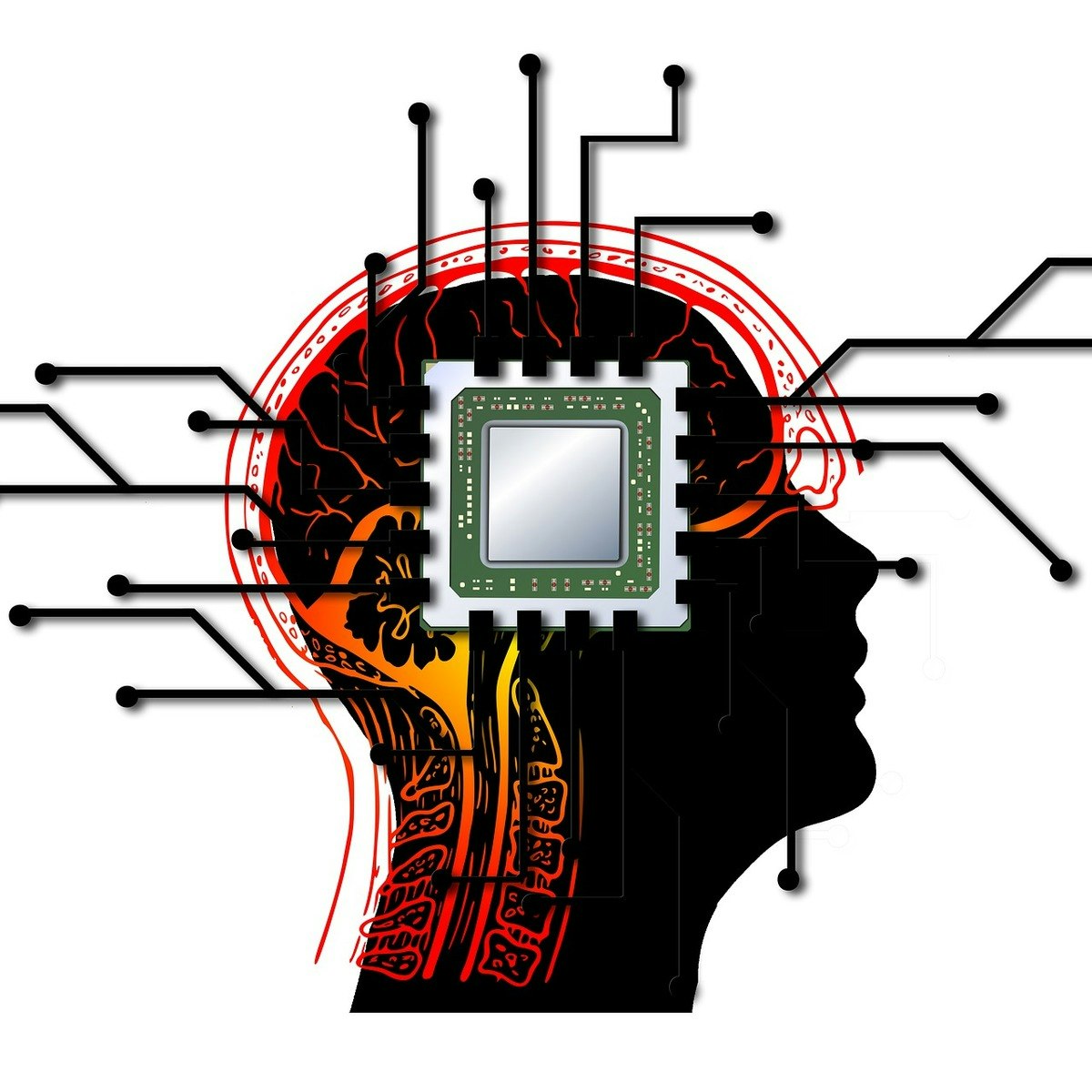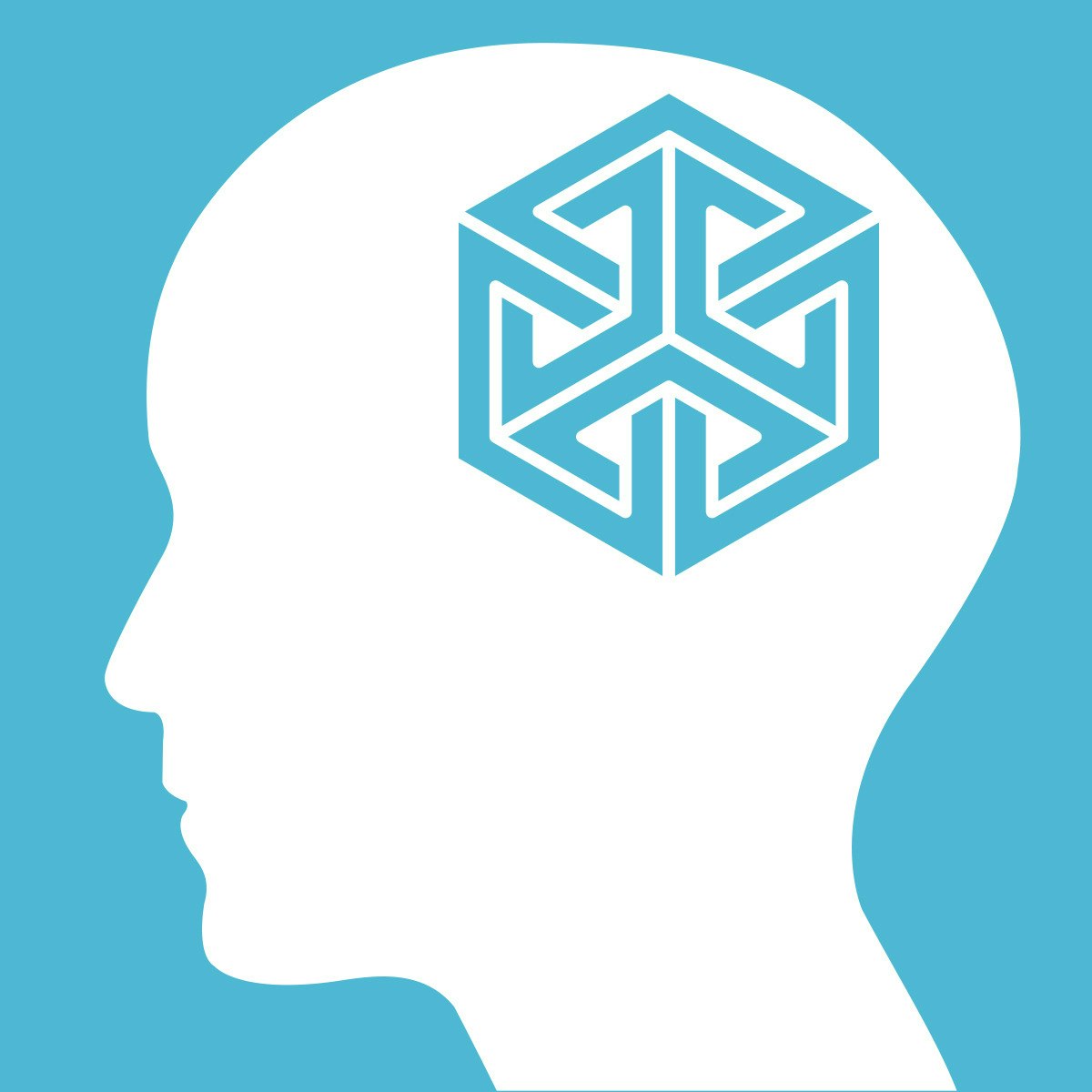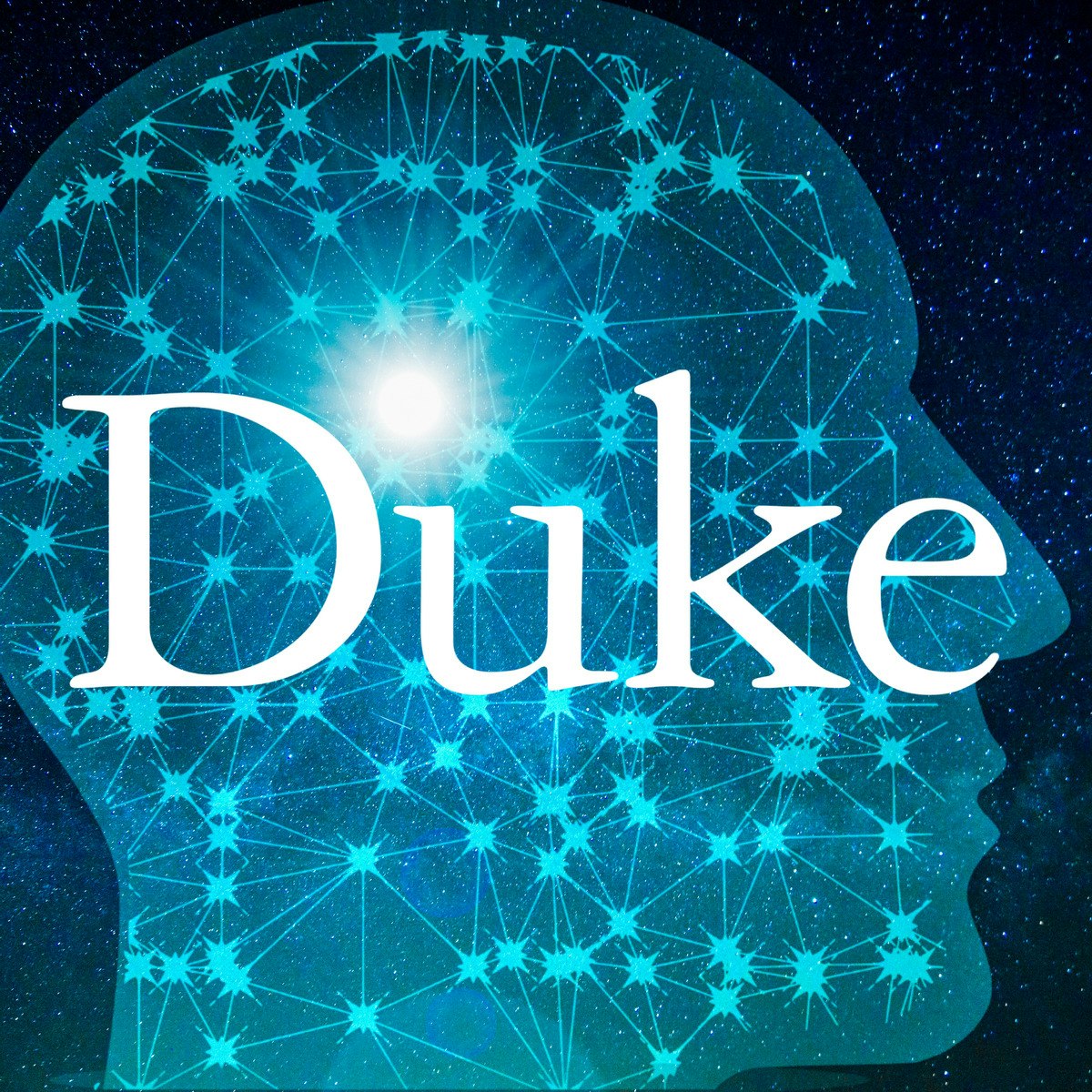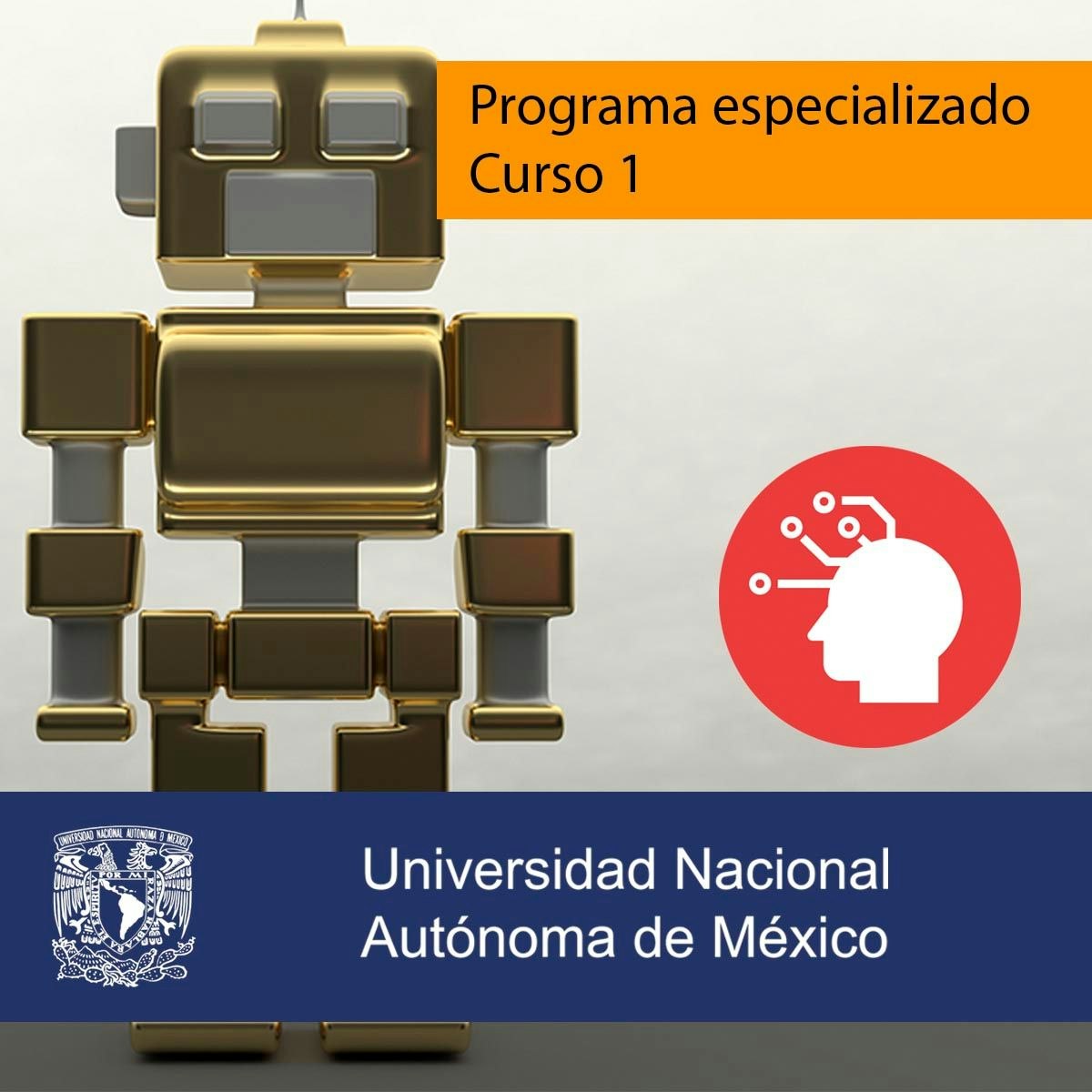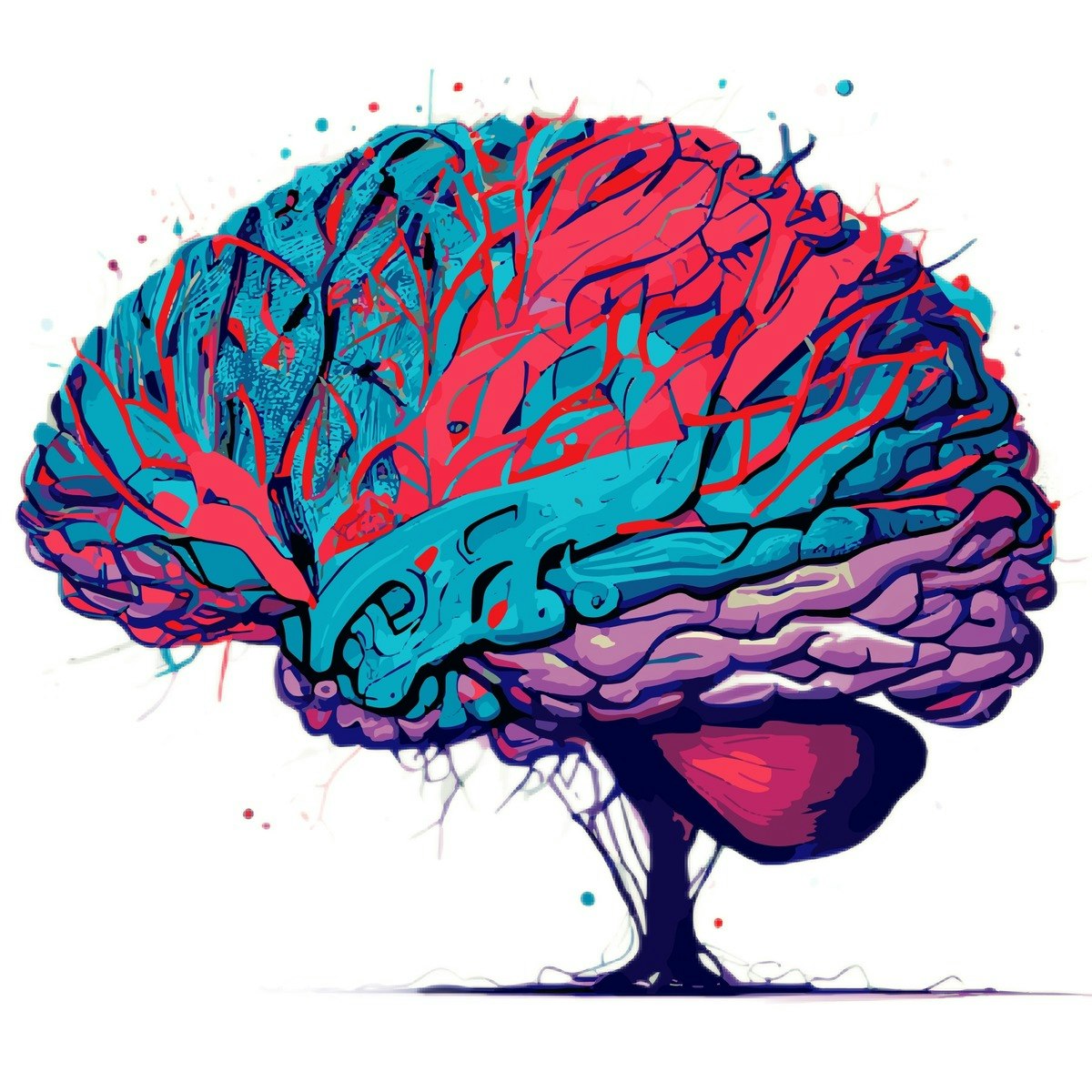Cognitive Scientist
A Career Exploration: Cognitive Scientist
Cognitive science is the fascinating and broad scientific study of the mind and its processes. It seeks to understand how we think, perceive, learn, remember, reason, and use language. It's an inherently interdisciplinary field, drawing insights and methods from psychology, computer science (especially artificial intelligence), neuroscience, linguistics, philosophy, and anthropology to paint a comprehensive picture of cognition.
Working as a cognitive scientist can be incredibly engaging. You might find yourself designing experiments to test theories about memory, building computational models to simulate learning, analyzing language patterns to understand communication, or exploring the philosophical underpinnings of consciousness. The field tackles fundamental questions about what it means to be intelligent and aware, with applications ranging from improving educational techniques and designing user-friendly technology to developing more sophisticated artificial intelligence.
What is Cognitive Science?
At its core, cognitive science aims to understand intelligence and behavior, focusing on how information is represented, processed, and transformed within a system, whether biological (like the human brain) or artificial (like a computer). It operates on the principle that the mind, though complex, can be studied scientifically, often by examining it at multiple levels of analysis – from the firing of individual neurons to complex decision-making processes.
Defining the Field and Its Interdisciplinary Nature
Cognitive science emerged formally in the mid-20th century, spurred by advancements in computing and a desire to move beyond purely behaviorist explanations of the mind. It views thinking as a form of computation, involving mental representations (like concepts, rules, or images) and procedures that manipulate these representations. This computational view allows researchers from diverse backgrounds to collaborate.
For instance, a psychologist might design experiments to study attention, a computer scientist might build an AI model that mimics human attention mechanisms, a neuroscientist might use brain imaging to see which brain areas are active during attention tasks, a linguist might study how language directs attention, and a philosopher might analyze the very concept of attention itself. Cognitive science provides the framework for these different perspectives to converge.
This interdisciplinary approach is crucial because understanding the mind requires insights from many angles. Psychology offers experimental methods and theories about behavior, neuroscience provides knowledge about the brain's hardware, linguistics analyzes the structure of language (a key cognitive tool), AI offers ways to model cognitive processes, and philosophy raises fundamental questions about knowledge, consciousness, and the nature of mind.
To learn more about the foundational psychological principles that inform cognitive science, introductory courses can be very helpful.
A Brief History
The intellectual roots of cognitive science stretch back centuries, with philosophers pondering the nature of mind and knowledge. However, its modern form began coalescing in the 1950s and 1960s. This period, sometimes called the "cognitive revolution," marked a shift away from behaviorism, which focused only on observable stimuli and responses, towards studying internal mental processes.
Key developments included the rise of computer science and artificial intelligence, offering new metaphors (mind-as-computer) and tools for modeling thought. Linguists like Noam Chomsky challenged behaviorist accounts of language acquisition, arguing for innate mental structures. Psychologists began developing information-processing models of memory, attention, and problem-solving.
The field formally organized in the mid-1970s with the founding of the Cognitive Science Society and the journal Cognitive Science. Since then, it has continued to evolve, incorporating advances in neuroscience (especially brain imaging techniques) and exploring concepts like embodied cognition, which emphasizes the role of the body and environment in shaping thought.
Key Domains of Study
Cognitive science integrates several core disciplines. Psychology contributes experimental methods and theories about perception, learning, memory, and reasoning. Neuroscience investigates the brain structures and neural processes underlying mental functions, often using techniques like fMRI and EEG.
Linguistics analyzes language structure, acquisition, and use, revealing insights into how humans represent and communicate meaning. Artificial Intelligence (AI) focuses on creating computational models of intelligence and cognitive processes, testing theories and developing intelligent systems.
Philosophy explores fundamental conceptual questions about mind, consciousness, knowledge, and representation. Anthropology contributes by studying cognition across different cultures and its evolutionary development. Each domain offers unique tools and perspectives for understanding the multifaceted nature of the mind.
These courses offer deeper dives into the neuroscience aspects relevant to cognitive science.
Real-World Applications
The insights gained from cognitive science have numerous practical applications. In Human-Computer Interaction (HCI) and User Experience (UX) design, principles of perception, attention, and memory inform the creation of intuitive and effective interfaces for software, websites, and devices.
In education, understanding how people learn leads to better teaching methods and instructional design. Cognitive science informs the development of educational software and strategies for addressing learning disabilities. Artificial intelligence research, heavily influenced by cognitive science, drives advancements in areas like natural language processing, robotics, and machine learning, impacting fields from healthcare to finance.
Furthermore, cognitive science contributes to clinical psychology and psychiatry by providing models of cognitive dysfunction in mental disorders and informing the development of cognitive therapies. It also plays a role in fields like marketing (understanding consumer decision-making), law (evaluating eyewitness testimony), and economics (behavioral economics).
Exploring Core Concepts in Cognitive Science
Cognitive scientists delve into the mechanisms of thought using various theoretical frameworks and research methods. Understanding these core concepts is essential for anyone seriously considering a career in this field, whether in academia or industry.
Understanding How We Process Information
Information processing models are central to cognitive science. These models view the mind as a system that receives input (like sensory information), processes it through various stages (like attention, perception, memory encoding), and produces output (like decisions or actions). Early models were often linear, resembling flowcharts in computer programming.
For example, a simple model of memory might involve stages like sensory memory (briefly holding raw input), short-term/working memory (actively processing information), and long-term memory (storing information for later retrieval). Researchers design experiments to test predictions derived from these models, often measuring reaction times or accuracy on specific tasks.
More recent models incorporate parallel processing and network-based approaches (like connectionism), reflecting the brain's ability to handle multiple streams of information simultaneously. Understanding these models helps cognitive scientists conceptualize mental operations and formulate testable hypotheses about how thinking works.
These books provide foundational knowledge in cognitive psychology, where information processing is a key theme.
Frameworks for Decision-Making
How do we make choices, from simple preferences to complex life decisions? Cognitive scientists study decision-making using various frameworks. Some focus on rational choice theories, examining how people *should* make decisions to maximize utility, often borrowing from economics. Others investigate heuristics (mental shortcuts) and biases that describe how people *actually* make decisions, which often deviate from pure rationality.
Research explores factors influencing decisions, such as risk assessment, emotional states, memory retrieval, and framing effects (how choices are presented). Computational models are developed to simulate decision processes, incorporating factors like uncertainty and competing goals. Understanding these frameworks is crucial for applications in areas like behavioral economics, clinical diagnosis, and artificial intelligence design.
This course explores some of these complex interactions from different perspectives.
Human-AI Interaction Paradigms
As artificial intelligence becomes more integrated into our lives, understanding how humans interact with AI systems is increasingly important. Cognitive science investigates the principles governing effective Human-AI interaction. This includes studying how people perceive AI capabilities, build trust in AI systems, collaborate with AI partners, and adapt to AI-driven automation.
Research explores interface design, communication protocols, ethical considerations (like bias in AI decision-making), and the cognitive load imposed by interacting with complex systems. Cognitive scientists contribute to designing AI systems that are not only powerful but also understandable, trustworthy, and aligned with human needs and values.
These courses delve into AI concepts, including aspects relevant to human interaction and ethical considerations.
Methods for Studying Neuroplasticity
Neuroplasticity refers to the brain's remarkable ability to change its structure and function in response to experience, learning, or injury. Cognitive scientists, particularly those overlapping with neuroscience, study neuroplasticity using various methods. Brain imaging techniques like fMRI (functional Magnetic Resonance Imaging) allow researchers to observe changes in brain activity patterns associated with learning new skills or recovering from brain damage.
EEG (Electroencephalography) measures electrical activity, providing high temporal resolution to track rapid changes during cognitive tasks. Techniques like TMS (Transcranial Magnetic Stimulation) can temporarily stimulate or inhibit specific brain regions to probe their causal role in behavior and plasticity. Animal models also play a crucial role, allowing for more invasive studies of cellular and molecular changes underlying brain reorganization.
Understanding neuroplasticity is fundamental to developing effective rehabilitation strategies for brain injuries and neurological disorders, as well as optimizing learning and training programs. Research in this area often requires integrating behavioral measures with advanced neuroimaging and computational modeling.
These courses explore neuroscience methods and brain function at different scales.
Embarking on the Educational Journey
Pursuing a career as a cognitive scientist typically involves significant formal education. The path often requires dedication and a strong academic foundation, but it opens doors to a deeply rewarding field focused on understanding the intricacies of the mind.
Building the Foundation: Undergraduate Studies
A bachelor's degree is the starting point. While some universities offer specific Cognitive Science majors, related fields like Psychology, Computer Science, Neuroscience, Linguistics, or Philosophy also provide excellent preparation. Key undergraduate coursework often includes introductory psychology, statistics, research methods, calculus, and programming (Python is particularly useful).
Exposure to logic, philosophy of mind, linguistics, and core computer science concepts (like data structures and algorithms) is also highly beneficial. Gaining research experience as an undergraduate, perhaps by working in a professor's lab, is invaluable for graduate school applications and for getting a feel for academic research.
This psychology course provides a good starting point for understanding the mind.
This book offers valuable insights into effective learning strategies, relevant for any student.
Deepening Expertise: Graduate Programs
Most research and specialized industry roles in cognitive science require a graduate degree, often a Ph.D. Master's programs exist but are less common as a terminal degree for research careers, though they can be valuable for certain industry positions (like UX research) or as a stepping stone to a Ph.D.
Ph.D. programs in Cognitive Science (or related departments like Psychology, Computer Science, Neuroscience) involve advanced coursework, comprehensive exams, and, most importantly, original dissertation research. Students specialize in specific areas, such as language processing, decision-making, computational modeling, cognitive neuroscience, or human-computer interaction. Choosing a program and advisor whose research interests align with your own is critical.
Graduate programs are rigorous and demand strong analytical, critical thinking, and communication skills. The dissertation requires designing, conducting, analyzing, and writing up a substantial piece of original research, contributing new knowledge to the field. This process develops deep expertise and research independence.
This book synthesizes aspects of intelligence and creativity central to cognitive science.
The Dissertation and Beyond: Research Expectations
The Ph.D. dissertation is the capstone of graduate training. It demonstrates the ability to conduct independent research, manage a long-term project, and communicate complex ideas effectively. The process involves identifying a significant research question, reviewing existing literature, developing hypotheses, designing studies (experimental, computational, or theoretical), collecting and analyzing data, and interpreting the results within the broader context of the field.
Successfully defending the dissertation earns the Ph.D. degree. Following the Ph.D., many researchers pursue postdoctoral training ("postdocs"). Postdoctoral positions provide further specialized research experience, often in a new lab or on a different research topic, helping researchers build their publication record and develop skills necessary for securing faculty positions or advanced industry roles.
Postdoctoral training typically lasts two to five years and is a common step towards an independent research career in academia or specialized roles in government or industry research labs. It's a period of intense research productivity and professional development.
Developing Essential Skills for Success
A successful career in cognitive science demands a unique blend of skills. Beyond subject matter expertise, cognitive scientists need proficiency in various research methods, technical tools, and communication strategies to thrive in this interdisciplinary field.
Mastering Research Methods
Cognitive scientists employ diverse methodologies. Quantitative methods are crucial, involving statistical analysis of experimental data, computational modeling, and analysis of large datasets (e.g., neuroimaging, linguistic corpora). Proficiency in statistics, experimental design, and data analysis software is essential.
Qualitative methods, such as protocol analysis (analyzing verbal reports during problem-solving), ethnographic observation (studying cognition in real-world settings), and discourse analysis, also play a role, particularly in areas interfacing with anthropology or human-computer interaction. A strong cognitive scientist understands the strengths and limitations of different methods and can choose the appropriate approach for a given research question.
This book explores cognition in real-world, complex settings, highlighting diverse methodological needs.
Programming and Technical Proficiency
Computational skills are increasingly vital. Proficiency in programming languages like Python or R is essential for data analysis, statistical modeling, stimulus presentation in experiments, and building computational models. MATLAB is also widely used, particularly in neuroscience and engineering-related cognitive science.
Familiarity with specific toolboxes or libraries for data analysis (e.g., scikit-learn, tidyverse), neuroimaging analysis (e.g., FSL, SPM, AFNI), or computational modeling (e.g., TensorFlow, PyTorch) is often necessary depending on the area of specialization. Comfort with data manipulation, visualization, and version control (like Git) are practical skills that enhance research efficiency and collaboration.
These courses provide introductions to computational approaches relevant to the field.
Designing Rigorous Experiments
For cognitive scientists who conduct empirical research, strong experimental design skills are paramount. This involves formulating clear, testable hypotheses, identifying independent and dependent variables, controlling for confounding factors, selecting appropriate participant populations, and designing tasks that effectively probe the cognitive process of interest.
Understanding principles of measurement, reliability, and validity is crucial for ensuring that experimental results are meaningful and interpretable. Ethical considerations, including obtaining informed consent and protecting participant privacy, are integral to the experimental design process. Rigorous design ensures that research findings are robust and contribute reliably to scientific knowledge.
Communicating Across Disciplines
Given the interdisciplinary nature of cognitive science, effective communication is key. Cognitive scientists must be able to explain their research and understand the work of colleagues from different backgrounds – psychologists, computer scientists, philosophers, neuroscientists, linguists. This requires translating complex ideas and technical jargon into language accessible to a broader audience.
Strong writing skills are essential for publishing research papers, grant proposals, and technical reports. Oral presentation skills are needed for presenting findings at conferences and collaborating with research teams. The ability to synthesize information from diverse fields and communicate insights clearly is a hallmark of a successful cognitive scientist.
Navigating Your Career Path in Cognitive Science
A degree in cognitive science opens doors to a variety of career paths in both academia and industry. The journey often involves progressing through distinct stages, offering opportunities for growth, specialization, and potentially pivoting between sectors.
Starting Out: Entry-Level Opportunities
With a bachelor's degree, entry-level roles often involve supporting research or applying cognitive principles in specific domains. Common positions include Research Assistant or Lab Technician in university or hospital labs, assisting with data collection, participant recruitment, and preliminary analysis. Other options include roles in UX/UI analysis or design, data analysis, technical writing, or educational technology development, where an understanding of human cognition is valuable.
These roles provide practical experience and exposure to the field. They can be a stepping stone towards graduate studies or more specialized industry positions. Strong analytical skills, technical proficiency (especially programming), and good communication abilities are typically required.
Consider exploring related fields where cognitive science skills are applicable.
Advancing Your Career: Mid-Level Roles
With a graduate degree (Master's or Ph.D.) or significant experience, mid-career opportunities expand. In academia, this might involve postdoctoral research positions, leading to roles as Assistant Professors conducting independent research, teaching, and mentoring students. In industry, cognitive scientists might work as Data Scientists, UX Researchers, AI/Machine Learning Engineers, Product Managers, or Human Factors Engineers.
Other possibilities include roles as research scientists in government labs or private research institutions, consultants advising companies on human factors or AI strategy, or policy advisors informing government decisions related to technology or education. These roles often require deeper specialization, project management skills, and the ability to lead initiatives.
Reaching the Top: Senior Positions
Senior cognitive scientists often hold leadership positions. In academia, this means becoming a tenured Professor, leading a research lab, securing major grants, and shaping the direction of research in their field. In industry, senior roles could include Principal Scientist, Research Director, Chief Science Officer, or executive positions overseeing R&D, product strategy, or data science teams.
These positions demand extensive expertise, a strong track record of impactful work, leadership abilities, strategic thinking, and often, significant management responsibilities. Senior cognitive scientists may influence organizational strategy, mentor junior colleagues, and contribute to the broader scientific or technological community.
Exploring Alternatives: Entrepreneurship and Consulting
The skills developed in cognitive science are also well-suited for alternative career paths. Some cognitive scientists leverage their expertise to found startups, particularly in areas like educational technology, AI applications, brain training software, or UX consulting. Entrepreneurship requires not only technical knowledge but also business acumen, risk tolerance, and leadership.
Consulting is another option, where cognitive scientists apply their understanding of human behavior, decision-making, and technology interaction to help organizations solve specific problems. This could involve advising on product design, optimizing workflows, improving training programs, or developing AI strategies. Consulting roles often require excellent problem-solving, communication, and client management skills.
Industry vs. Academia: Choosing Your Environment
Cognitive scientists can build fulfilling careers in either academic institutions or private industry. Each sector offers distinct opportunities, challenges, and work environments. Understanding these differences is crucial when deciding which path best aligns with your interests and career goals.
Research Focus and Publication Expectations
Academic careers primarily revolve around conducting original research and disseminating findings through peer-reviewed publications (journal articles, conference papers, books). Success is often measured by publication output, citation impact, and securing research grants. Academic research allows for deep exploration of fundamental questions, often driven by intellectual curiosity.
Industry research is typically more applied, focusing on developing products, services, or solutions with commercial value. While publication is sometimes encouraged or required, the primary goal is often proprietary development or internal reporting. Timelines may be shorter, and research questions are often dictated by business needs rather than purely scientific inquiry.
Funding Sources and Stability
Academic research relies heavily on external grant funding from government agencies (like the NIH or NSF in the US) or private foundations. Securing grants is competitive and requires significant time investment in writing proposals. Funding cycles can create periods of uncertainty, though tenured positions offer greater job security.
Industry research is funded internally by the company. While budgets can fluctuate based on business performance, funding may be more readily available for projects aligned with strategic goals. Job security can depend on company stability, project success, and market conditions.
This book explores the mechanisms underlying mental processes, relevant to both academic and applied research.
Team Structures and Collaboration
Academic labs are often led by a Principal Investigator (Professor) and include graduate students, postdoctoral researchers, and technicians. Collaboration occurs within the lab and with researchers at other institutions. The structure can be hierarchical but often allows for significant autonomy in research direction, especially for senior members.
Industry research teams often involve cross-functional collaboration with engineers, designers, product managers, and marketing specialists. Projects are typically team-based, with clear roles and responsibilities. The structure might be more matrixed or product-focused, emphasizing teamwork and alignment towards shared business objectives.
Ethical Considerations and Review
Both sectors require adherence to ethical principles, especially when research involves human participants. Academia has established Institutional Review Boards (IRBs) that rigorously review research protocols for ethical compliance, focusing on informed consent, participant safety, and data privacy. The emphasis is on protecting participants and upholding scientific integrity according to established guidelines like those from the American Psychological Association or the Belmont Report.
Industry also has ethical review processes, though they may vary by company and be more focused on compliance with regulations (like GDPR or HIPAA) and mitigating business risks. Concerns might include data privacy in commercial products, potential biases in AI algorithms, and the ethical implications of persuasive technologies or neuromarketing. Ensuring ethical conduct is crucial in both settings, but the specific procedures and focus areas can differ.
The Impact of Emerging Technologies
Cognitive science is a dynamic field constantly evolving alongside technological advancements. New tools and techniques are not only changing how research is conducted but also opening up new avenues of inquiry and application, profoundly impacting the work of cognitive scientists.
Advancements in Neuroimaging
Techniques for observing the living brain continue to improve. Higher-resolution fMRI, diffusion tensor imaging (DTI) for mapping brain connectivity, and advancements in EEG and MEG (Magnetoencephalography) provide increasingly detailed views of brain structure and function. Tools like Arterial Spin Labeling offer non-contrast methods for perfusion imaging. These advancements allow researchers to ask more sophisticated questions about the neural basis of cognition.
Integrating data from multiple imaging modalities (multimodal imaging) offers a more comprehensive understanding. According to researchers at Stanford Neurosciences Institute, combining techniques helps overcome the limitations of individual methods. These developments require cognitive scientists, especially those in cognitive neuroscience, to continually update their technical skills in data acquisition and analysis.
These resources discuss neuroimaging techniques and data structures.
record:26
record:29
AI-Powered Research Platforms
Artificial intelligence is transforming cognitive science research itself. Machine learning algorithms are used to analyze complex datasets, such as identifying subtle patterns in brain activity or large behavioral datasets. AI can automate aspects of experimental design, data collection (e.g., through intelligent tutoring systems or adaptive experiments), and data analysis, increasing efficiency and enabling new research paradigms.
AI models also serve as powerful tools for testing theories of cognition. Building computational agents that can learn, reason, or use language allows researchers to explore the feasibility of different cognitive architectures. The rise of large language models (LLMs) and generative AI presents both opportunities and challenges for understanding human intelligence.
These courses explore AI and its connection to cognitive science.
Virtual and Augmented Reality Environments
Virtual Reality (VR) and Augmented Reality (AR) technologies offer new platforms for cognitive research. VR allows researchers to create immersive, controlled environments for studying perception, navigation, spatial cognition, and social interaction in ways not possible with traditional lab setups. AR can overlay digital information onto the real world, enabling studies of attention, context-aware assistance, and human-computer interaction in natural settings.
These technologies provide ecologically valid yet controllable experimental settings. They open possibilities for research on topics like embodied cognition, skill training, and therapy for phobias or PTSD. Cognitive scientists are exploring how to leverage VR/AR for both basic research and practical applications, requiring skills in developing and utilizing these immersive environments.
Brain-Computer Interfaces and Ethical Frontiers
Brain-Computer Interfaces (BCIs) create direct communication pathways between the brain and external devices. Initially developed to assist individuals with severe motor disabilities, BCI technology is advancing rapidly, raising profound possibilities and ethical questions. Cognitive scientists are involved in understanding the neural signals used by BCIs, improving their usability, and exploring their potential for cognitive enhancement.
The ability to directly read from or write to the brain raises significant ethical concerns about mental privacy ("neuroprivacy"), agency, identity, and potential misuse. As BCIs become more sophisticated, cognitive scientists will play a crucial role in guiding their development and application responsibly, considering both the technical challenges and the societal implications.
This course touches upon the neural basis of related concepts.
Global Perspectives and Opportunities
Cognitive science is a global enterprise. Researchers, students, and practitioners often collaborate across borders, and career opportunities exist worldwide. However, the landscape varies significantly by region, influenced by funding priorities, cultural contexts, and institutional structures.
Research Funding Landscapes
The availability and sources of research funding differ across countries and regions. North America and Western Europe traditionally have strong government funding for basic and applied cognitive science research through agencies like the NIH, NSF, ERC, etc. However, funding levels can fluctuate with political and economic changes.
Other regions, particularly in Asia, are rapidly increasing investment in science and technology, including cognitive science and AI research. Understanding the specific funding mechanisms, priorities, and application processes in different countries is crucial for researchers seeking international positions or collaborations. Private foundations and industry funding also play varying roles globally.
Cross-Cultural Cognition Research
A growing area within cognitive science examines how cultural factors shape cognitive processes. Research explores variations in perception, reasoning, language, and social cognition across different cultural groups. This requires sensitivity to cultural contexts, collaboration with local researchers, and methodologies appropriate for diverse populations.
Demand for cross-cultural research is increasing as globalization highlights the need to understand cognitive diversity. This specialization offers unique opportunities for researchers interested in anthropology, sociology, and the interplay between culture and mind. It also informs the development of technologies and educational practices suitable for global audiences.
This book explores how thinking styles might differ, relevant to cross-cultural studies.
Navigating International Careers
For cognitive scientists seeking opportunities abroad, understanding immigration policies for researchers and highly skilled professionals is essential. Visa requirements, work permits, and residency regulations vary significantly. Some countries actively recruit international talent in science and technology, offering streamlined processes or specific visa categories.
Professional networks, international conferences, and online job boards are valuable resources for finding global opportunities. Building international collaborations during graduate or postdoctoral training can also facilitate career mobility. Language skills and cultural adaptability are significant assets for those pursuing an international career path.
The Rise of Remote Collaboration
Technology has made international collaboration easier than ever. Researchers can work together on projects, share data, and co-author publications remotely using video conferencing, cloud computing, and collaborative software platforms. This trend allows cognitive scientists to engage with colleagues worldwide without necessarily relocating.
While remote collaboration offers flexibility, it also presents challenges related to time zones, communication barriers, and building strong working relationships. However, it expands the pool of potential collaborators and allows for the assembly of diverse teams with unique expertise, regardless of geographic location. This trend is likely to continue shaping the global landscape of cognitive science research.
Ethical Considerations in the Field
Cognitive science delves into the very nature of mind, thought, and behavior, raising unique and complex ethical challenges. Practitioners must navigate issues related to privacy, bias, consent, and the potential impact of their research and technologies on individuals and society.
Protecting Mental Privacy (Neuroprivacy)
As technologies like advanced neuroimaging and BCIs become capable of decoding mental states or even thoughts with increasing accuracy, the concept of "neuroprivacy" emerges. Protecting the privacy of individuals' brain data and mental information is a critical ethical concern. Researchers and developers must establish clear guidelines and robust security measures to prevent unauthorized access or misuse of sensitive neural data.
Questions arise about who owns brain data, how it can be used (e.g., in legal contexts or by employers), and what rights individuals have over their own mental information. Cognitive scientists must be at the forefront of discussions establishing ethical frameworks for handling neural data responsibly.
Ethical considerations in neuroscience research are paramount.
record:20
Addressing Bias in AI and Behavioral Models
AI systems and computational models developed within cognitive science are often trained on data reflecting existing societal biases. This can lead to algorithms that perpetuate or even amplify unfair discrimination based on race, gender, or other characteristics. Cognitive scientists have an ethical responsibility to identify, understand, and mitigate bias in their models and AI applications.
This involves careful consideration of training data, model architectures, and evaluation metrics. Transparency and interpretability of AI systems are crucial for identifying and correcting biases. Ensuring fairness and equity in AI requires ongoing vigilance and interdisciplinary collaboration involving ethicists, social scientists, and affected communities.
This course touches upon ethical AI design.
Dual-Use Research and Potential Misuse
Some cognitive science research, particularly in areas like persuasion, behavior modification, or AI, could potentially be misused for harmful purposes (dual-use). For example, insights into decision-making could be used for manipulative advertising or political propaganda. AI developed for beneficial purposes might be adapted for autonomous weapons or surveillance.
Cognitive scientists must consider the potential negative applications of their work and engage in discussions about responsible innovation. This involves assessing risks, considering safeguards, and potentially advocating for policies or norms that limit harmful uses. Transparency about research goals and potential implications is crucial.
This philosophical course might stimulate reflection on autonomy and influence.
Informed Consent in Neuromarketing and Beyond
Obtaining truly informed consent is a cornerstone of ethical research. In cognitive science, this can be challenging, especially when studying implicit processes, using deceptive experimental designs (which require careful justification and debriefing), or working with vulnerable populations. The rise of neuromarketing, which uses neuroscience techniques to study consumer responses, raises specific concerns about whether participants fully understand how their brain data might be used.
Ensuring that consent is voluntary, informed, and ongoing is critical across all areas of cognitive science research. Researchers must clearly communicate the purpose, procedures, risks, and benefits of their studies in accessible language. Upholding participant autonomy and welfare requires constant attention to ethical best practices as outlined by institutional review boards and professional organizations like the Cognitive Science Society.
These resources discuss ethical guidelines and principles.
record:4
record:17
Frequently Asked Questions
Exploring a career in cognitive science often brings up common questions. Here are answers to some frequently asked questions to help clarify the path forward.
What's the difference between Cognitive Science and Neuroscience?
While related and often overlapping, cognitive science and neuroscience have different primary focuses. Neuroscience concentrates on the biological mechanisms of the nervous system – the structure, function, genetics, and physiology of neurons and brain circuits. Cognitive science focuses more broadly on the mind and its processes (like perception, memory, language, reasoning), using insights from neuroscience but also incorporating approaches from psychology, AI, linguistics, and philosophy. Think of neuroscience as focusing on the "hardware" and its function, while cognitive science focuses on the "software" (mental processes) and how it runs on the hardware, often using computational analogies.
Is this a stable career in a rapidly evolving field?
Cognitive science is indeed rapidly evolving, driven by advances in AI and neuroscience. However, the fundamental skills developed – analytical thinking, problem-solving, research methods, data analysis, understanding human behavior – are highly transferable and in demand across various sectors. According to the U.S. Bureau of Labor Statistics, job growth for related fields like psychology and data science is projected to be strong. While specific roles may change, the underlying demand for understanding cognition and intelligence, both human and artificial, suggests good long-term prospects. Adaptability and a commitment to lifelong learning are key.
Reports from organizations like the World Economic Forum highlight analytical and creative thinking – core cognitive skills – as increasingly crucial in the future job market.
What programming skills are essential for beginners?
For beginners aiming for research or technical roles, Python is often the most recommended language due to its versatility, extensive libraries for data analysis (e.g., Pandas, NumPy, SciPy) and machine learning (e.g., scikit-learn, TensorFlow, PyTorch), and wide adoption in both academia and industry. R is another excellent choice, particularly strong for statistical analysis and visualization. Familiarity with MATLAB can also be beneficial, especially in neuroscience or engineering contexts. Starting with one language (often Python) and understanding core programming concepts (variables, loops, functions, data structures) is more important than trying to learn many languages superficially.
Which industry sectors have the highest demand for cognitive scientists?
Demand is strong in the technology sector, particularly in roles related to Artificial Intelligence, Machine Learning, User Experience (UX) Research and Design, and Data Science. Companies developing AI products, software, search engines, social media platforms, and consumer electronics value cognitive scientists' insights into human behavior and cognition. Other sectors with growing demand include healthcare (cognitive assessment, neurorehabilitation, health tech), education (educational technology, learning analytics), finance (behavioral finance, fraud detection), marketing (consumer behavior, neuromarketing), and government/defense (intelligence analysis, human factors).
What are the typical work-life balance challenges?
Work-life balance varies significantly depending on the specific role and sector. Academic careers, especially pre-tenure, often involve long hours due to the combined demands of research, teaching, grant writing, and service. Postdoctoral positions can also be intense. Industry roles may offer more regular hours, but project deadlines, product launches, or startup environments can also lead to periods of high workload. Finding balance often requires strong time management skills, setting boundaries, and choosing an employer or environment whose culture supports well-being.
How might AI automation impact job prospects?
AI is automating certain tasks across many fields, and cognitive science is no exception (e.g., automating parts of data analysis). However, AI is also creating new roles and increasing the demand for individuals who understand both human cognition and AI systems. Cognitive scientists are uniquely positioned to design, develop, evaluate, and manage AI systems, ensuring they are effective, ethical, and human-centered. While routine tasks may be automated, the core skills of critical thinking, creativity, complex problem-solving, and understanding human intelligence are less susceptible to automation and likely to become even more valuable.
Embarking on a career in cognitive science is a commitment to understanding the complexities of the mind. It requires rigorous training and continuous learning but offers the profound reward of contributing to our knowledge of thought, intelligence, and behavior, with diverse applications that shape our world. Whether you pursue research in academia or apply cognitive principles in industry, it's a field rich with intellectual challenges and opportunities for impact.

